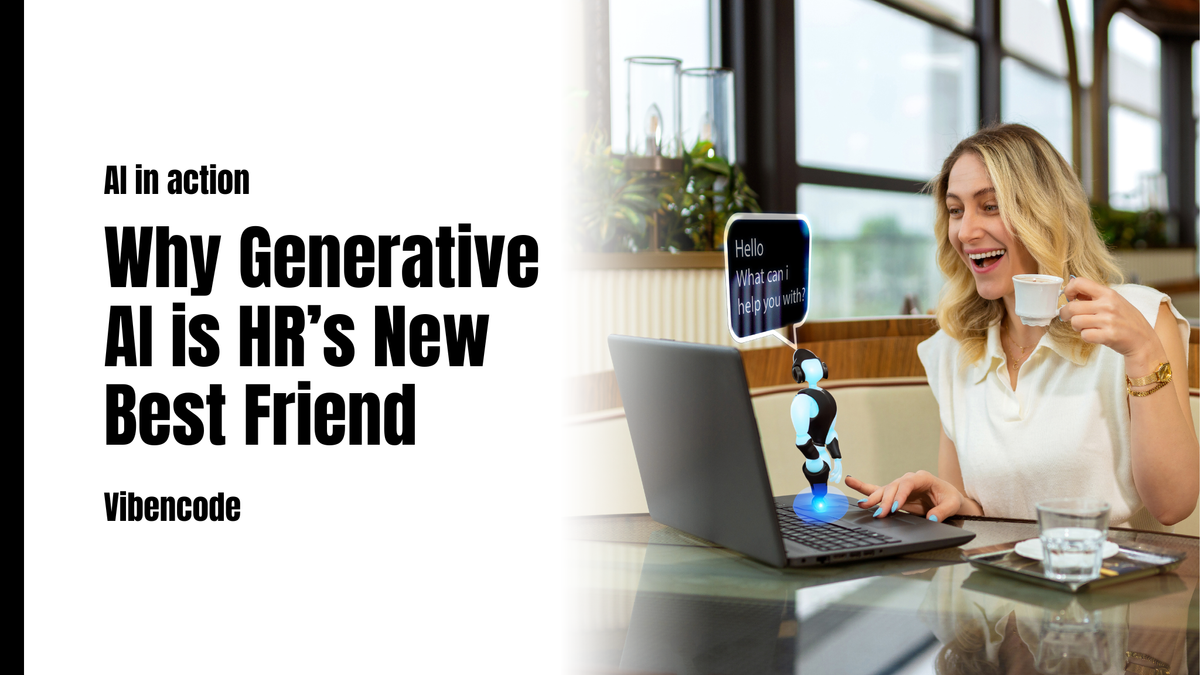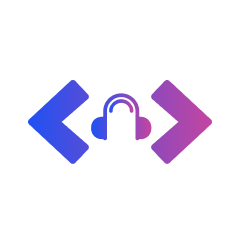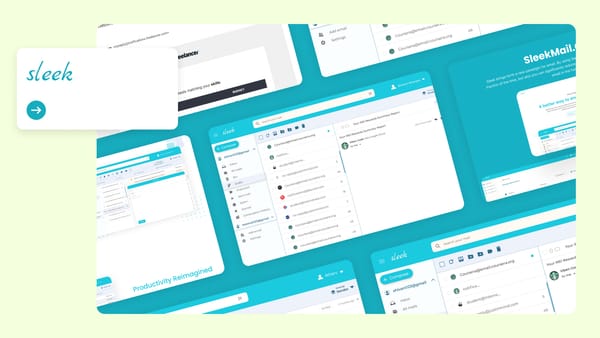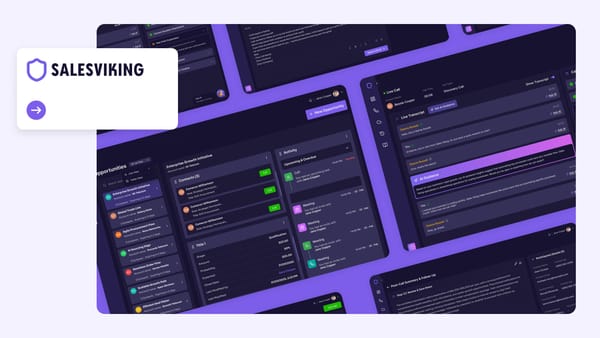Why Generative AI Chatbots Are HR's New Best Friend for Streamlined Services

Generative AI in HR is really changing the game by taking over those boring, repetitive tasks. AI chatbots are a prime example of how generative AI is redefining HR service delivery. These digital assistants improve efficiency and keep everyone happy. With generative AI driving big changes, HR can now focus on growth projects.
Innovation is happening all the time, and AI is leading the way. Chatbots are a great example of generative AI in HR, making everything easier and improving employees’ experiences in this new era.
Understanding AI Chatbots in HR
Definition of AI Chatbots
Chatbots use generative AI and NLP. They are designed to chat like humans. These intelligent programs are capable of answering questions, completing tasks, and providing information. They can adapt to user interactions, creating a chat that feels like a human conversation.
Chatbots are sophisticated and user-friendly, effectively merging technology with natural conversation. Exploring the functionality of generative AI in HR settings highlights the growing role of technology in enhancing employee experience.
How AI Chatbots Work in an HR Context
In HR, AI chatbots engage with employees via websites, apps, and messaging systems. These chatbots use rules and generative AI to understand queries and respond. With time, they enhance their performance and accuracy by learning from previous interactions.
Types of AI Chatbots Used in HR
- Rule-based Chatbots: Operate based on predefined scripts and rules. They are efficient for handling repetitive tasks with clear and straightforward answers.
- Generative AI Models: Utilize machine learning to generate responses. Generative AI in HR allows for more natural and flexible interactions, handling a broader range of inquiries.
Key Benefits of Generative AI in HR Services
Enhanced Employee Experience
Generative AI in HR chatbots answers employee inquiries instantly. They improve response times and are available 24/7. Employees can access HR information at any time without having to wait for office hours. AI chatbots provide quick, accurate answers about leave and benefits, boosting employee satisfaction.
Automating Routine HR Tasks
An important benefit of generative AI in HR is its ability to handle repetitive tasks efficiently. AI chatbots can process leave requests, provide payroll information, and answer frequently asked questions. This automation frees HR from manual, time-consuming tasks, allowing them to focus on creative, strategic work.
Improved Onboarding Processes
Generative AI in HR streamlines the onboarding process by providing real-time information to new hires. AI chatbots guide employees through company policies, procedures, and essential onboarding activities. Additionally, AI chatbots can personalize onboarding by tailoring information to each new hire’s needs and role, which boosts engagement and retention.
Efficient Communication and Engagement
Internal communication is crucial for any organization. Generative AI in HR enables seamless communication between employees and HR through AI chatbots. They keep employees updated on policies, events, and announcements, ensuring easy access to vital information. By maintaining an open communication channel, AI chatbots foster a more engaged and informed workforce.

Employee Well-Being and Generative AI in HR
Generative AI in HR also supports employee well-being initiatives. AI chatbots direct workers to wellness resources, and stress-relief activities, and provide 24/7 mental health support. This fosters a healthy work environment, ultimately improving employee satisfaction and productivity.
Use Cases of Generative AI in HR
Recruitment and Candidate Engagement
Generative AI in HR chatbots revolutionizes recruitment by engaging potential candidates through pre-screening questions. They assess qualifications, answer queries, and schedule interviews, creating an efficient recruitment process. Additionally, chatbots update candidates on their application status, which improves the candidate experience and the employer brand.
Employee Self-Service Portals
Generative AI in HR chatbots are valuable tools for employees, providing self-service options for tasks such as updating personal information, accessing HR resources, and managing requests. This reduces the need to rely on HR for basic tasks, giving employees quick access to information.
Training and Development Support
Generative AI in HR chatbots supports training and development by providing instant access to learning materials and answering questions during training. Their availability ensures employees receive timely help, improving training programs. Additionally, AI chatbots can integrate with Learning Management Systems (LMS), recommend courses, track progress, and answer questions about learning paths, creating a personalized learning experience.
Real-Time Feedback Collection
Generative AI in HR is effective in conducting pulse surveys and gathering real-time feedback from employees. This feedback helps HR teams understand workplace dynamics, satisfaction, and areas for improvement. Acting on this feedback can help organizations enhance their culture and employee experience.
Employee Offboarding
Generative AI in HR also helps with offboarding employees. AI chatbots can guide them through exit processes, collect feedback, and manage all admin tasks. This makes offboarding efficient for both the departing employee and the HR team.
Challenges of Implementing Generative AI in HR
Data Privacy and Security Concerns
AI chatbots in HR handle sensitive employee data, which raises major privacy and security concerns. Organizations must implement strict data protection measures to keep personal data safe. Failure to address these concerns can lead to data breaches and loss of employee trust.
Ensuring Human Touch
Generative AI in HR excels at routine tasks. However, AI chatbots lack the empathy and emotional intelligence needed for certain HR situations. It is vital to balance automation with human interaction, especially for tasks requiring a personal touch, like resolving conflicts or addressing sensitive employee issues.
Handling Complex Queries
Generative AI in HR chatbots have limitations in dealing with non-standard and complex queries. They may struggle to understand and provide accurate responses in such cases. Organizations must ensure chatbots can redirect employees to HR for complex issues while maintaining service quality.
Best Practices for Leveraging Generative AI in HR
Integrate with Other HR Systems
For maximum efficiency, generative AI in HR should integrate seamlessly with existing HR management systems. This integration ensures consistent data flow, real-time updates, and comprehensive service delivery.
Prioritize Data Security and Employee Privacy
Organizations must adopt robust data security measures to protect sensitive employee information. This includes encryption, secure data storage, and strict access controls. Ensuring privacy builds trust and confidence among employees.
Regular Updates and AI Training
It is vital to keep AI chatbots current on company policies, HR processes, and laws. Regular training improves the chatbot’s accuracy and reliability, ensuring it provides relevant, compliant information.
Maintain a Human Backup
AI chatbots should redirect employees to HR for complex issues. This ensures support and maintains the human element in HR.
Future of Generative AI in HR
Generative AI in HR is set for significant growth. Future advances in NLP and AI will enhance chatbots, making them more intuitive and human-like. As these technologies evolve, chatbots will provide even more personalized HR services.
Generative AI in HR is also expected to support hybrid work models. AI chatbots will help remote employees by providing consistent access to HR services, regardless of location. This flexibility is vital as organizations adapt to changing work environments.
Analytics and Insights from Chatbot Interactions
Generative AI in HR can provide HR teams with valuable data analytics. By analyzing employee interactions, HR can find common questions, issues, and areas for improvement. This data-driven approach helps HR enhance the employee experience and improve operations.
Conclusion
Generative AI in HR is transforming HR services. AI chatbots boost efficiency, streamline processes, and improve employee satisfaction. However, it is crucial to balance technology with the human element to ensure AI complements rather than replaces human interaction.
For HR departments, using generative AI chatbots is a strategic move that modernizes operations and enhances HR services. By leveraging generative AI in HR, organizations can achieve greater efficiency and boost employee engagement, gaining an edge in the fast-changing corporate world. Embracing this technology is essential for future-ready HR services.





